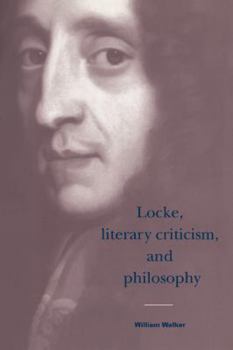Locke, Literary Criticism, and Philosophy
(Part of the Cambridge Studies in Eighteenth-Century English Literature and Thought Series)
Select Format
Select Condition 
Book Overview
William Walker's analysis of John Locke's An Essay Concerning Human Understanding offers a challenging and provocative assessment of Locke's importance as a thinker, bridging the gap between philosophical and literary-critical discussion of his work. He is revealed as a crucial figure for emerging modernity, less the familiar empiricist innovator and more a proto-Nietzschean thinker. Walker's reading of Locke is finely attentive to the text and resourceful...
Format:Paperback
Language:English
ISBN:0521024749
ISBN13:9780521024747
Release Date:March 2006
Publisher:Cambridge University Press
Length:248 Pages
Weight:0.81 lbs.
Dimensions:0.6" x 6.0" x 9.0"
Customer Reviews
0 rating





